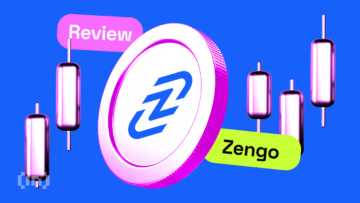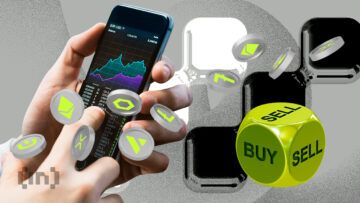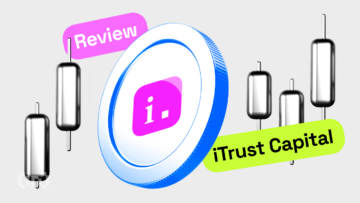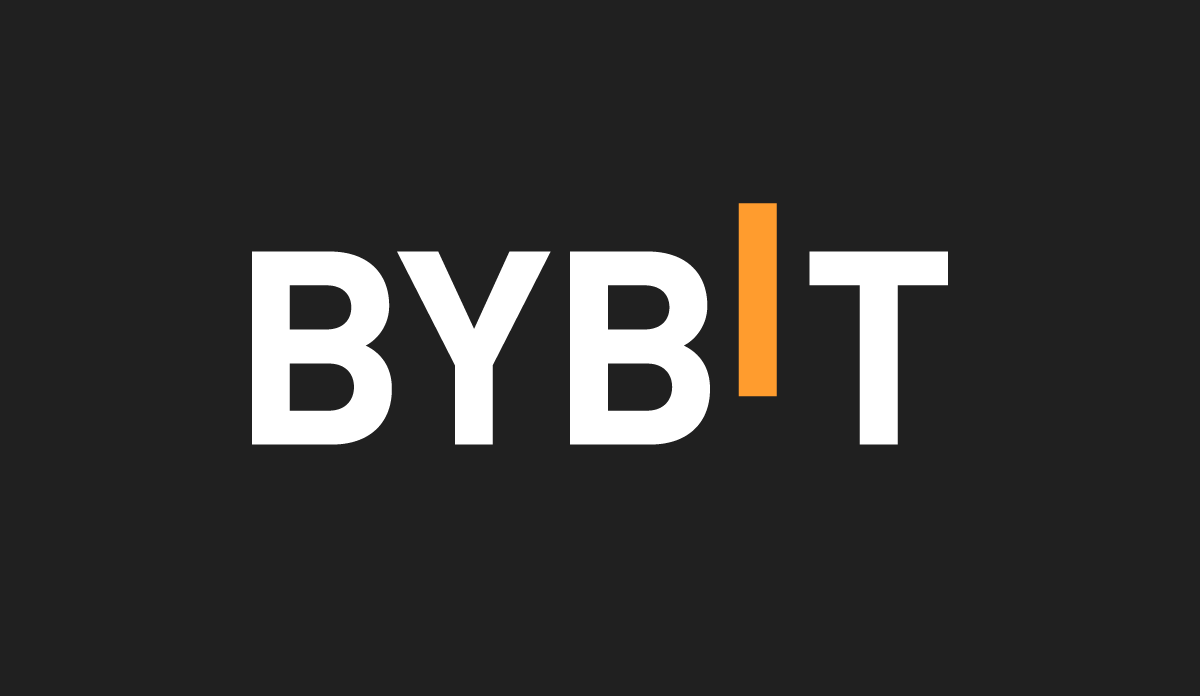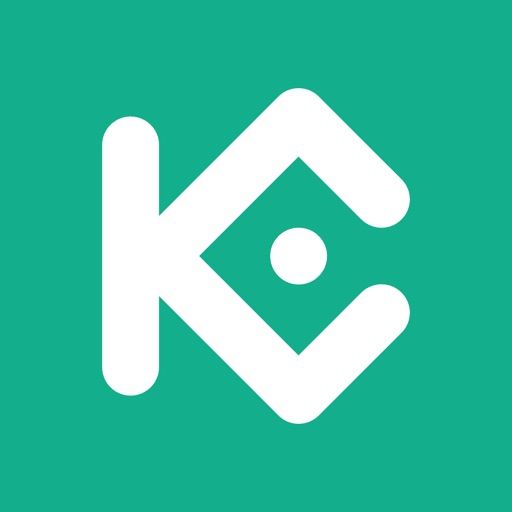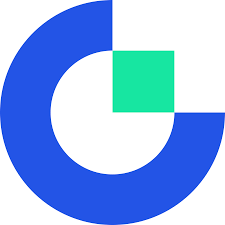Gone are the days when popular financial products were relegated to Wall Street and traditional finance. Products like loans, options, leveraged, and margin trading have been available to crypto degens for some time now. And crypto futures trading platforms are no different.
Advanced products like futures create a robust financial market, allow traders to hedge, and give a glimpse of market sentiment around an underlying security or crypto asset. This article is a beginner’s guide to crypto futures that covers the basics of crypto futures trading, the best platforms for crypto futures trading in 2024, and what to look for in a futures exchange.
Manage your crypto portfolio across multiple exchanges in one place!
Try a free tool Delta.App. It’s available both for iOS and Android, supports 300+ exchanges and 7000+ cryptocurrencies, let you to track your crypto investments and get personalized notifications and watchlists.
Download Delta.App: iOS | Android
What is crypto futures trading?

Crypto futures trading is more straightforward than it might seem at first glance. A futures contract, often referred to as futures, is a financial instrument akin to a smart contract. It obligates a party to buy or sell an asset at a predetermined price and date in the future. Using blockchain and smart contracts in this context ensures transparency and efficiency in these financial transactions.
For example, the current price of cryptocurrency “X” is $1,500. You purchase a futures contract for 100 tokens of cryptocurrency “X” at a price of $1,550 per token. This will cost you $155,000. If the price increases to $1,700 per token in three months, you will have made $15,000 ($170,000 for 100 tokens).
Conversely, you can also take out a futures contract, where you sell instead of buying at a future date. For example, if the trader wants to sell at a future date, they can lock in the price at $155,000 with a futures contract. If the price drops to $1,400 per token ($140,000 for 100 tokens), the trader can still sell at $155,000 ($1,550 per token).
/Related
More ArticlesUnlike options contracts, the parties of a futures contract are obligated to buy or sell at the expiration date, regardless of profits or losses. Futures allow traders to speculate on crypto market price movements instead of holding the assets themselves.
12 crypto futures trading platforms
Coinbase is a U.S. based cryptocurrency broker. The company was founded in 2012 by Fred Ehrsam and Brian Armstrong, its current CEO. It was initially a simple bitcoin exchange but would eventually expand to altcoins as well.
Over the years, Coinbase has established itself as a reliable platform and has gained a large market share of centralized exchanges’ volume due to its reputation.
By the end of 2014, Coinbase expanded its services to 19 countries as a result of rapid growth. This would eventually lead to a $8 billion valuation in 2018. Coinbase would eventually go public on April 14, 2021.
Coinbase offers several features for both new and experienced users. However, users should keep in mind that some of Coinbase’s service are goegraphically restriced.
Firstly, the platform offers the standard buying, selling, and exchanging of cryptocurrencies. It also offers NFTs, staking, a crypto card, and a flagship non-custodial wallet.
However, Coinbase also has Coinbase Pro, which has advanced charting and trading features for more experienced traders. There is also a learn-to-earn program where you can gain cryptocurrency for completing educational taks to earn cryptocurrency.
- User friendly interface
- Strong security measures
- Wide variety of supported cryptocurrencies
- Regulatory compliance in many jurisdictions
- Mobile app for those on the go
- Some geographical restriction for select services
- Experienced outages during high market activity
- Some concerns for sharing personal data with authorities
INX
Taker: 0.4%
Credit/ debit card deposit fee: 3.75%
Wire (local & international): $35
INX is a Gibraltar based fintech company that allows you to trade cryptocurrencies. The company prides itself on adherence to regulation, particularly in the United States.
Additionally, INX has received a money transmitter license in multiple states, and has also secured approval as a broker dealer from the SEC.
In other words, you shouldn’t have to worry about the heavy-handed enforcement action that has come against exchanges lately. Because of this, INX also has the ability to allow you to buy crypto security tokens on the platform.
The most notable feature of INX is that if you are a company that intends to raise capital, the platform facilitates this process via security tokens. On the other hand, if you would like to purchase security tokens, you can do that too.
Of course, you can also buy and trade crypto on the platform, up to 10 coins and tokens, but there are also learning resources. So if you need a short crash course or a refresher on crypto, INX has what you need.
- Purchase security tokens
- Buy and sell crypto
- Multiple regulatory licenses
- Learning resources
- Limited availability for geographical regions
- Limited number of cryptocurrencies
Kraken
Taker fee: 0.05% – 0.015%
The U.S.-based cryptocurrency exchange, Kraken, was established in 2011. It was one of the first bitcoin exchanges included on Bloomberg Terminal. Kraken is regulated by FinCEN and thus adheres to all legal and regulatory requirements in each country in which they operate.
The trading chart for Kraken is quite sophisticated, offering a variety of time frames and technical indicators. Additionally, it provides conditional trading with stop/limit orders. Finally, Kraken offers futures trading, a way to amplify profits with 50x leverage, over-the-counter desk, and cryptocurrency indices.
- Advanced trading features
- Multi-collateral options (10)
- Up to 50x leverage
- Futures not available to U.S. residents
- Limited fiat currencies support
- UI slightly cluttered
Margex
Taker fee: 0.06%
Margex, established on August 15, 2019, is a cryptocurrency trading platform tailored for those interested in participating in the digital asset markets.
Operating from its base in Seychelles, the platform offers several standout features. Notably, it boasts an impressive average execution time of just 8 milliseconds.
It also maintains an extensive order book with a total value surpassing $40,000,000, sourced from a network of over 12 liquidity providers, and showcases an impressive capacity to handle up to 100,000 transactions per second (tps).
Margex offers a range of features to cater to cryptocurrency traders, including leverage trading with the potential for up to 100x leverage.
Traders can also take advantage of copy trading, allowing them to replicate successful trading strategies employed by other traders. Additionally, users have the option to stake their cryptocurrency holdings.
The platform supports both spot and derivatives trading, giving traders flexibility in their investment choices. Margex also provides price alerts to users with real-time requirements, enabling them to stay informed about market movements. For traders on the go, Margex offers a mobile app available on both Android and iOS platforms.
- High liquidity and fast execution
- Diverse order types available
- Advanced trading interface
- Mobile support
- Minimum deposit of $10
- No direct fiat support
- Regional restrictions
Bybit
Maker fee: 0.01% – 0%
Withdrawal fees very based on cryptocurrency
Bybit is a cryptocurrency exchange based in Dubai. The platform was founded in 2018. Retail and institutional clients around the world can use the company’s online spot and derivatives trading services, mining and staking products, and API support. Bybit also provides an NFT marketplace, a token launchpad, and institutional services.
Bybit allows up to 100x leverage on margin and futures trading. Users can get up to 100x leverage on bitcoin and up to 50x to 25x leverage on other currencies. Customers can also purchase short-term loss insurance. Bybit allows you to integrate TradingView so that you can receive real-time alerts when the market meets your customized criteria.
- TradingView integration
- Insurance fund
- Educational resources
- Large selection of contracts
- Limited options for fiat deposit
- Complicated for beginners
Binance
Maker: 0.02%-0%
Taker: 0.04%-0.017%
BUSD
Maker: 0.012%-(-)0.01%
Taker: 0.03%-0.023%
Binance is a crypto exchange and trading platform based in Tokyo. The platform debuted in 2017 and has since grown to become an industry behemoth. The exchange is sophisticated, with a number of advanced tools for seasoned traders. It is now the world’s largest cryptocurrency exchange in terms of trading volume and assets under management.
When it comes to products, Binance does not fall short. Not only does Binance have spot trading, but futures and options trading is also available. You can choose between quarterly or perpetual, settled in USDT, BUSD, or other cryptocurrencies. In addition to bitcoin futures contracts, you can choose from a large variety of crypto futures contracts to trade.
Advanced traders may take advantage of Binance’s trading bot, while beginners might be more interested in Binance’s copy trading features.
- Advanced trading charts
- Variety of contracts
- Copy trading
- Trading bot
- Not available in the U.S.
- Long verification process
StormGain
Withdrawal fees depend on cryptocurrency
Stormgain is a centralized cryptocurrency exchange founded in 2017 and based in the U.K. It is a one-stop shop platform and mobile app. While Stormgain is a spot trading platform, users can cut their teeth with a number of derivatives trading products.
With StormGain futures, users can get funds for trading and increase their order volume with the highest leverage on the market, up to 500x. Secondly, there is no need to deposit, you can trade directly from your blockchain wallet. The platform has 61 contracts available, including bitcoin futures contracts.
- Beginner friendly UI
- Variety of contracts
- Up to 500x leverage
- Limited fiat deposit
- Limited order types
MEXC
Taker fee: 0.02%-0.014%
MEXC, previously known as MXC, was founded in Seychelles in 2018. The business has compliance licenses in five nations, including Canada and Switzerland. Moreover, MEXC enables you to buy, sell, and trade crypto. Many users recognize the global platform for its high performance and state-of-the-art transaction matching technology.
A variety of services are available to users, including portfolio management, leveraged exchange-traded funds (ETFs), perpetual futures, NFT Index, and trading spots. Additionally, futures traders can use USDT or other cryptos as collateral and receive up to 200x leverage on a variety of contracts.
Furthermore, the trading platform allows for multiple order types. If you are new to trading futures, MEXC has a bevy of learning resources and tutorials. Once you finish their tutorials, you can practice what you’ve learned using the demo trading feature.
- Learning resources
- 200x leverage
- Multiple order types
- Does not support fiat withdrawal
Kucoin
Taker fee: 0.06%-0.03%
Kucoin is a global cryptocurrency exchange that launched in 2017. The platform has locations in Hong Kong, Bangkok, Singapore, Dubai, and Seychelles. Today the platform has millions of global users and billions in trading volume.
Kucoin futures offers both pro and lite versions — tailoring a focused experience to both pro and beginner traders. Additionally, you can use up to 100x leverage on a wide variety of contracts. Several of KuCoin futures’ trading products are available with cash settlements. Based on the coins used for settlement, these contracts are further divided into USDT-Margined, USDC-Margined, and COIN-Margined contracts.
- Pro and lite version
- 100x leverage
- Cash settled contracts
- Limited fiat support
- Not regulated in the U.S.
Gate.io
Taker: 0.075%
Gate.io is a cryptocurrency trading platform that has been active since 2013. The platform was originally known as Bter.com before being renamed Gate.io in 2017.
Futures on Gate.io are margined in BTC and USDT. Through the mixed collateral function, you can use margin on BTC or ETH in your spot account and borrow up to 100,000 USDT with no interest for contract trading. Instead of risking real capital, you can also take advantage of the testnet, which is simulated or demo trading.
- Learning resources
- Variety of contracts
- Advanced interface
- Mixed collateral
- Limited cryptocurrencies for mixed collateral
- No fiat withdrawals
OKX
Taker fee: 0.05%-0.02%
OKX (formerly OKEx) provides a wide range of services, including a cryptocurrency exchange. The platform is based in Seychelles and is available to users worldwide, except for the United States. OKX offers a user-friendly interface and a suite of advanced features.
OKX Crypto-Margined Futures Contracts are a derivative product that is settled in cryptocurrencies like BTC, LTC, and ETH. And those who qualify can obtain up to 20x leverage. Users can also make use of a trading bot. Finally, futures contracts on OKX are margined in USDT, USDC, and other cryptos.
- Educational resources
- Variety of contracts
- Globally available
- Not available in the U.S.
Unlike decentralized spot exchanges, GMX allows users to perform spot swaps and trade perpetual futures with up to 50x leverage while keeping assets in their crypto wallet. Another distinguishing feature of GMX is the use of price oracles such as Chainlink. The use of Chainlink Oracles enables the protocol to obtain accurate price data for assets in the pool. Furthermore, GMX has low swap fees, trades with no price impact, and limit orders.
- Built on Arbitrum and Avalanche
- 50x leverage
- Permission less
- Profit sharing
- Only on desktop
- Few trading pairs
Best crypto futures trading platform qualities
If you want to start trading crypto futures, consider the following features and variables when choosing a platform.
User interface
Advanced trading apps with a strategic focus produce trading signals (e.g., distinct market entry and exit points). Trading applications also implement technical indicators and offer complex charting features. The best platforms give users as much information as possible without overwhelming them or overcrowding the UI.
Trading fees and commissions
Commission rates differ from firm to firm, so it is paramount to confirm a fee schedule before deciding to use a crypto futures trading platform. Always remember that if something is free, the user is the product.
Order types
Order types are the “secret sauce” to an expert trading strategy. They tell your crypto exchange how and when to execute your order at the best prices. This is a basic feature of nearly all brokers. If your trading platform doesn’t have order types, choose a different trading platform!
Leverage and margin
Futures frequently involve borrowing in order to invest, which calls for a reliable middleman. Due to the leveraged nature of its financial products, the futures market is heavily dependent on the clearinghouse. As a result, clearinghouses impose margin demands large enough to pay the member’s debit balance.
By using a margin, you can execute larger or more advanced trades by putting up less money than the total cost of the transaction. Some trading platforms will allow up to 500x leverage. Make sure you know your chosen platform’s margin and leverage offerings.
Crypto futures trading platforms compared
| Platform | INX | Coinbase | Kraken | Bybit | Binance | StormGain | MEXC | KuCoin | Gate.io | OKX | GMX | Margex |
| Best Feature | Security tokens | Security | Advanced trading feature | Insurance fund | Trading bot | 500x leverage | Learning resources | Pro and lite version | Mixed collateral | Global availability | Permissionless | Copy trading |
| Fees | Maker: 0.3% Taker: 0.4% | N/A | Maker: 0.02% – 0.005% Taker: 0.05% – 0.015% | Taker: 0.06% – 0.03% Maker: 0.01% – 0% | USDT Maker 0.02% – 0% Taker: 0.04% – 0.017% | N/A | Maker: 0% Taker: 0.02% – 0.014% | Maker: 0.02% – (-)0.015% Taker: 0.06% – 0.03% | Maker: -0.025% Taker: 0.075% | Maker: 0.02% – (-)0.015% Taker: 0.05% – 0.02% | Maker: 0.01% Taker: 0.01% | Maker: 0.019% Taker: 0.06% |
| Decentralized | No | No | No | No | No | No | No | No | No | No | Yes | No |
| Fiat Support | Yes | Yes | Yes | Limited | Limited | No | Limited | No fiat withdrawal | Limited | Limited | No | Limited |
| Mobile App | Yes | Yes | Yes | Yes | Yes | Yes | Yes | Yes | Yes | Yes | No | Yes |
Which is the best platform for you?
Selecting a good crypto futures trading platform is not difficult, but it requires research and understanding of what you seek. Once you learn the basics (e.g., fees, trading tools, etc.), you can consider more advanced features, like liquidity or order execution. Each exchange will have unique features that may or may not suit your personal needs.
Frequently asked questions
Crypto futures trading is a very simple concept. A crypto futures contract allows a party to buy or sell a cryptocurrency at a predetermined price and date in the future. Unlike options, the parties are obligated to buy or sell at the expiration date. By agreeing on a future price, crypto futures contracts can be used to both speculate and hedge an existing position.
If you are looking for fiat support, the best exchange to for futures trading in cryptocurrency is more than likely Kraken. However, if you like high leverage trading, StormGain is arguably the best exchange for leverage. The best exchange all depends on your personal needs so make sure you research each reputable crypto futures trading platform before decided on one.
Crypto futures trading is very popular. Many exchanges offer futures contracts on the leading cryptocurrencies. Although, most futures in crypto are usually perpetual futures contracts, which are essentially futures contracts without an expiry date.
Binance supports futures trading. The exchange has advanced trading tools for all your trading needs. The exchange is sophisticated, with a number of advanced tools for seasoned traders, including copy trading, making it one of the most popular crypto derivatives trading platforms in the market.
If you are excluding other charges, MEXC has the lowest trading fees for futures. However, this may change if you consider other charges. Other charges may include deposit, withdrawal, or delivery fees. Make sure you conduct thorough research before choosing a futures exchange that’s suitable for you and your trading needs.
Coinbase does offer futures contracts. The exchange’s derivatives are smaller in size than the industry standards. Coinbase has both nano bitcoin and nano ether contracts, both which are cash settled on a monthly basis.
New crypto trading apps continue to emerge in response to the rising interest in crypto assets, each with different benefits and drawbacks. As a beginner, the features of crypto futures exchanges you should look for include high liquidity, a clean interface, quick execution order, and fiat currency support. Examples would be trading apps like Kraken, StormGain, and MEXC. Seasoned traders require advanced crypto trading tools with technical indicators and complex charting features. Examples would be crypto trading apps like Kucoin, Gate.io, and Binance.
Crypto futures contracts are a type of derivatives contract that allows you to speculate on the futures prices of cryptocurrency. While there are laws that limit speculative trading, crypto futures trading is legal in the U.S. However, not all crypto derivative trading platforms offer futures trading services in the U.S. The Commodity Exchange Act requires exchanges to register as Futures Commission Merchants (FCM) to offer futures services. You can trade crypto futures in the U.S. on exchanges like Coinbase, OKX, and Kraken.
Crypto futures trading allows you to bet on cryptocurrency price movements without having to own the underlying asset. However, crypto is known as a highly volatile asset class that can potentially generate high returns but that comes with a high level of risk (especially when trading with leverage). Some of the risks involved in crypto futures trading include over-leverage, sharp crypto market movements, high interest rates, lack of liquidity, and operational risks. Having said that, bitcoin futures trading is becoming increasingly more regulated, mitigating some of the risks involved for traders and investors.
Yes, crypto futures trading is legal (in most countries). Crypto futures contracts, like any other futures contracts, have restrictions and regulations that govern how trading is conducted. Some futures trading platforms are regulated, while others are unregulated, depending on location.
In the U.S., you’re required to follow the regulations on investing or speculating on virtual currencies set by the Commodity Futures Trading Commission (CFTC). However, just because the cryptocurrency futures exchanges are regulated doesn’t mean the underlying crypto market is also regulated.
Crypto futures trading is entering a contractual agreement to buy or sell digital assets at a certain price on a predetermined date in the future. To trade crypto futures, you need to create an account with a crypto futures trading platform. Once your account is approved and you’ve read and signed the Risk Disclosure agreement, you can start futures trading.
You can enter into a crypto futures position with another trader depending on the margin amounts in your account, pricing, execution date, and settlement method. Note that there is a difference between traditional crypto futures contracts and perpetual futures contracts. Finally, the futures contract can be settled through “physical” delivery or cash settlement.
Risk management in futures trading is essential in helping you make educated decisions when managing your positions. While crypto futures contracts can be a convenient way to invest in cryptocurrency, beginner traders stand the risk of over-leveraging themselves without the right strategies. For instance, leverage in crypto futures can be a double-edged sword; it helps you control large contract values with a small amount of capital, but like in margin trading, uninformed traders run the risk of getting liquidated due to over-leveraging, resulting in steep losses.
Having said that, once you understand the associated risks of trading crypto, you can potentially trade this asset class profitably while minimizing the chances of potential losses.
You need to do your own research and understand crypto portfolio management before investing in any digital assets to make educated decisions when trading crypto futures.
Yes, there is a liquid market for cryptocurrency futures contracts. You can trade crypto futures on regulated derivatives exchanges as well as specialized crypto futures trading platforms, providing secure market access for both institutional TradFi market players from as well as retail traders.



